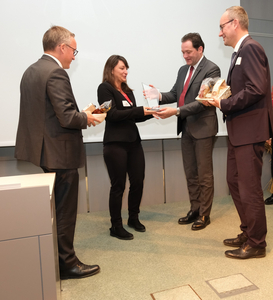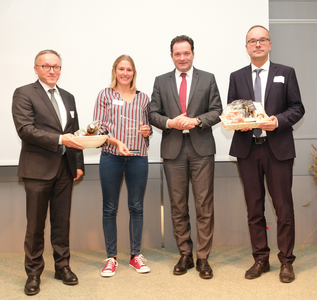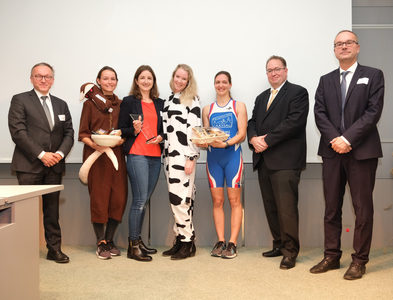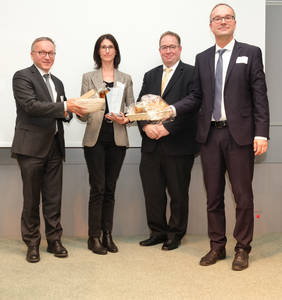Climate change is not only manifested in long-term climate changes, we are already feeling its effects now: Hot summers and extreme weather events such as heavy rain and droughts are becoming more frequent. No wonder that Austrians are more concerned about the increasing number of heat days and heat waves in 2022 than they were in 2017, as our annual risk barometer shows.
For our Climate Day, we sought projects that promote climate protection or adaptation to climate change: Timely and active adaptation to climate change can mitigate or even prevent damage. Minister of Agriculture Norbert Totschnig and Head of Section Ulrich Herzog from the Ministry of Health awarded four projects from the more than 30 submitted projects in the categories human, animal, plant and environment.
The revision and expansion of the Austrian dietary recommendations taking into account health and climate aspects, a project of the Ministry of Health, Gesundheit Österreich and AGES, emerged as the winner in the human category.
In the animal category, the project "Leptospirosis in cattle in Lower Austria" was awarded: Leptospires are bacteria that can also cause severe diseases in humans and are better able to survive in the environment due to warmer temperatures in combination with heavy rain. Vetmeduni Vienna and AGES have isolated Leptospira strains from infected Lower Austrian cattle in the laboratory and made them available for further research.
For the winning project in the plant category, "Yield potential of chickpeas on Austrian soils" by AGES, 24 non-native chickpea varieties are cultivated in dry areas in Austria to find the best varieties for cultivation in Austria.
And the "Children's Climate Detectives" project of the municipality of Hollabrunn convinced with its interactive involvement of children in imparting knowledge about the effects of climate change and developing ideas for future solutions for climate change adaptation in the Environment category.
Our managing directors Anton Reinl and Thomas Kickinger expressed their gratitude for the numerous submissions and for the great public interest of 500 participants.



